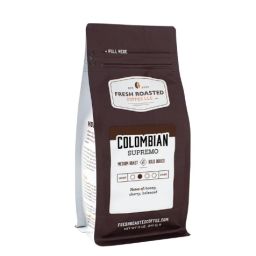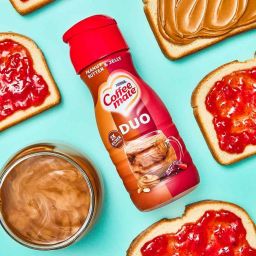Ever thought about how your coffee creamer could be affecting your cholesterol levels? It’s something many of us overlook while pouring that creamy goodness into our morning brew. But here’s the thing: the kind of creamer you use can have a significant impact on your heart health. So, let’s dive into why picking a low cholesterol coffee creamer isn’t just a trivial choice—it’s a step towards a healthier you!
Key Takeaways
- Making the Right Choice Matters: Choosing a low cholesterol coffee creamer is more than just a dietary preference—it’s a heart-healthy decision. High cholesterol can lead to all sorts of nasty health issues, so why not tackle it starting with your first cup of the day?
- Embrace Non-Dairy and Low-Fat: Gone are the days when your only coffee creamer options were full-fat dairy or the plain old black coffee. Today, we have a plethora of non-dairy and low-fat alternatives that are kind to your heart and taste buds. Soy, almond, oat, and even coconut milk creamers can jazz up your coffee without the cholesterol baggage.
- Beware of Additives and Sugars: It’s not just about cutting out the fat—sugar and certain additives in creamers can also be cholesterol culprits. Opting for unsweetened or naturally sweetened creamers can make a world of difference to your overall health.
What Are Low Cholesterol Coffee Creamers?
Let’s chat about low cholesterol coffee creamers. These are not your average creamers; they’re a game-changer for those looking to manage their cholesterol levels without sacrificing their coffee’s creamy delight.
Why They’re a Big Deal
Low cholesterol coffee creamers are specially formulated to be low in saturated fats and free from trans fats, the usual suspects in raising bad cholesterol levels. They’re a fantastic choice for anyone aiming to keep their heart happy while enjoying a creamy cup of coffee.
How They Help
When you swap your regular creamer with a low cholesterol option, you’re essentially reducing your intake of the bad fats that contribute to high cholesterol. This simple switch can significantly impact your cholesterol levels over time, especially when combined with other healthy lifestyle choices.
The Impact of Traditional Creamers
Let’s dive into how traditional coffee creamers can be a bit of a troublemaker for our cholesterol levels. Most of these creamers are laden with saturated fats, and sometimes even trans fats, which are not exactly what you’d call heart-friendly. Consuming these fats regularly can lead to an increase in LDL (low-density lipoprotein) cholesterol, often dubbed as the “bad” cholesterol, which is a risk factor for heart disease.
Why Switch to Low Cholesterol Alternatives?
Switching to low cholesterol coffee creamers can be a game-changer. These creamers are typically made from plant-based milks or are low-fat dairy options, cutting down the bad fats significantly. By making this swap, you’re not just adding a splash of creaminess to your coffee; you’re also giving your heart health a nod of approval.
The Heart-Happy Benefits
Opting for a low cholesterol creamer means you’re actively reducing your intake of harmful fats. This simple daily choice can contribute to lowering your risk of heart disease and maintaining a healthier cholesterol profile. Plus, with so many delicious options available, your taste buds won’t even know the difference!
Non-Dairy Alternatives: A Creamy Revolution
Non-dairy creamers have taken the coffee world by storm, and for good reason! They offer a fantastic way to enjoy your coffee creamy and delicious without the cholesterol concerns tied to traditional dairy products.
- Soy Milk Creamers: A classic choice in the non-dairy aisle, soy milk creamers are a great option for those looking to keep their cholesterol in check. They blend well with coffee and come in various flavors to suit your taste.
- Almond Milk Creamers: Light and nutty, almond milk creamers add a delightful twist to your coffee. They’re lower in calories and free from saturated fats, making them a heart-smart addition to your morning cup.
- Oat Milk Creamers: Oat milk has gained popularity for its creamy texture and subtle sweetness, perfect for coffee. Plus, it’s a fantastic option for those looking to reduce their cholesterol levels.
- Coconut Milk Creamers: With a hint of tropical flair, coconut milk creamers offer a unique taste. They’re typically lower in cholesterol and can be a fun way to mix up your coffee routine.
Low-Fat Dairy Options: Skimming the Fat
For those who aren’t ready to part with dairy but want to make healthier choices, low-fat dairy options are your go-to.
- Skim Milk: The classic low-fat option, skim milk provides the creaminess you crave without the extra fat.
- 1% Dairy Milk: Slightly creamier than skim, 1% milk offers a good balance between flavor and health benefits, keeping your cholesterol levels in check.
Unsweetened Creamers: The Pure Choice
If you’re monitoring your sugar intake along with cholesterol, unsweetened creamers are the way to go. They let you enjoy the creaminess without adding extra sugar to your diet.
- Benefits: By choosing unsweetened creamers, you’re not only managing your cholesterol but also cutting down on unnecessary sugar, which can lead to other health issues.
- Options: Many non-dairy and low-fat dairy creamers offer unsweetened versions, giving you the health benefits without compromising on taste.
Deciphering the Label
When picking a coffee creamer, the label is your best friend. Dive into the ingredients list to sidestep unhealthy fats like trans fats or excessive saturated fats. These are the culprits behind high cholesterol levels. Also, watch out for additives and emulsifiers – simpler is often better when it comes to ingredients.
Sweeten Wisely
Sugar can sneak up on you in creamers, so keep an eye on the sweetener content. Natural sweeteners like stevia or monk fruit extract can offer sweetness without the sugar spike. On the other hand, artificial sweeteners might not add calories, but they’re not everyone’s cup of tea due to potential health concerns. Choose what aligns with your health goals and taste preferences.
Incorporating Low Cholesterol Creamers into Your Diet
Making the Switch
Transitioning to a low cholesterol creamer doesn’t have to be a jolt to your routine. Start by gradually mixing your regular creamer with a low cholesterol option, adjusting the proportions over time. This way, your taste buds can adapt smoothly.
Balance Is Key
Remember, it’s all about balance. A low cholesterol creamer is a step in the right direction, but it’s part of a larger picture of heart-healthy eating. Enjoy your coffee with a creamer that aligns with your health goals, but also pay attention to the rest of your diet for a holistic approach to wellness.
FAQs
Are Low Cholesterol Creamers Effective in Managing Cholesterol Levels?
Absolutely! Low cholesterol creamers can play a significant role in managing your cholesterol levels. By opting for creamers low in saturated and trans fats, you’re directly reducing the intake of the fats that raise bad cholesterol.
What Are Some Alternatives to Traditional Creamers?
Plenty! Soy, almond, oat, and coconut milk creamers are fantastic alternatives. They offer the creaminess you love without the cholesterol you don’t. Plus, they come in various flavors to suit every palate.
How Can I Integrate Low Cholesterol Creamers into My Diet?
It’s easy! Just swap out your usual creamer for a low cholesterol option. You can start by mixing both and gradually increasing the proportion of the low cholesterol creamer. And remember, balance is key, so pair this change with an overall heart-healthy diet.
Final Thoughts
Choosing the right coffee creamer is more than a trivial preference—it’s a heart-healthy decision. With a myriad of tasty and low cholesterol options available, it’s easier than ever to enjoy your coffee in a way that’s kind to your body.









